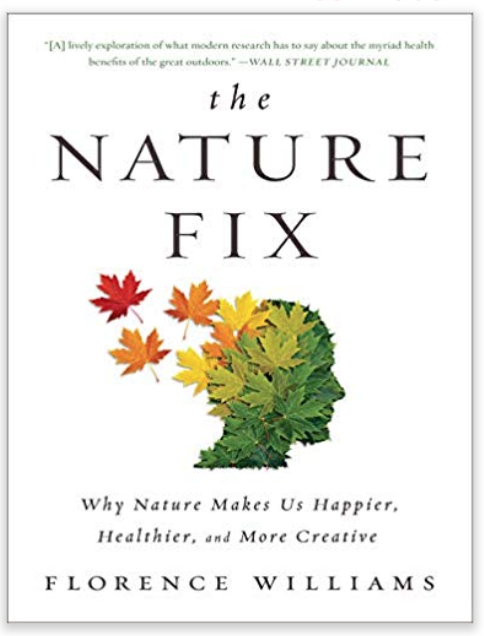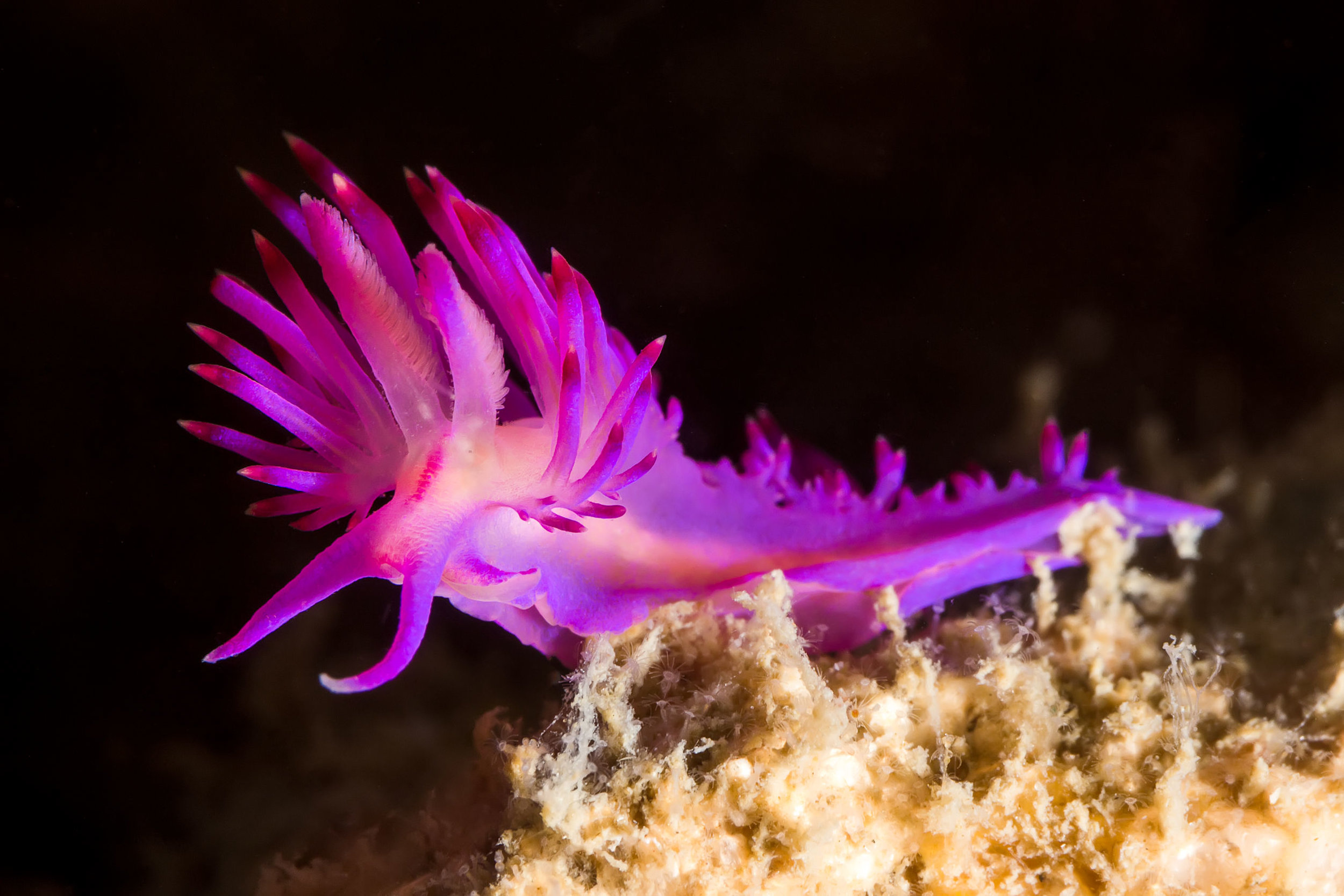Why Nature Matters
An excerpt from my new book, This Outside Life: Finding God in the Heart of Nature.
In the beginning, while He made the world, repeatedly we read the phrase, “And God saw that it was good” (Genesis 1). After each step, He is pleased and calls it “good.” I imagine in a small way, it’s like when we do something well. You nailed that birthday party. You figured out how to fix something. You created something and it turned out well. You know it and you are pleased. Although with Him, it is not only “good.” It is perfect and beautiful.
The world He has made is His first revelation of Himself, of His character, His design sense and is a reflection of what He delights in. “For since the creation of the world God’s invisible qualities—His eternal power and divine nature—have been clearly seen, being understood from what has been made, so that people are without excuse” (Romans 1:20). God’s divine nature is clearly seen through the beauty, wonder, science of what He has made. And we do well to ponder it. David writes in Psalm 8:
“When I consider your heavens, the work of your fingers, the moon and the stars, which you have set in place, what is mankind that you are mindful of them, human beings that you care for them?”
And God’s handiwork is not only beautiful, it’s healthful. it is good for us. Good for us to live in, eat from and delight in. In Florence Williams’ fascinating book, The Nature Fix, she describes what walking in nature does for our bodies and minds. According to the latest findings in science, just walking in nature for around 30-45 minutes alone (preferably evergreen woods and/or near running water or ocean) has the same effect on our systems as the daily pill of Prozac™. Also, being in nature elevates our NK (natural killer) cells to ward off disease.
Japan and South Korea are so convinced about the biological benefits of being in nature that they are dedicating more and more acreage and parks to the practice of “Forest Bathing,” or, Shinrin Yoku. In this experience, you walk along, paying particular attention to the sights and smells around you. You break branches to smell the sharp tang of the cypress oils. You breathe deeply and close your eyes. You get present. You unwind. This is Forest Bathing and although it sounds woo-woo, the science is impressive. And who among us doesn’t feel better after a walk outside? But unfortunately, the most outside many of us get is scurrying from our car to the office or home. And for our children, it’s even more important that they get outside.
Kids need nature too. James Sallis says, “Based on previous studies, we can definitely say that the best predictor of preschool children’s physical activity is simply being outdoors, and that an indoor, sedentary childhood is linked to mental-health problems Another study on the effect of nature and children came to these conclusions:
Access to green space was associated with improved mental well-being, overall health and cognitive development of children. It promotes attention restoration, memory, competence, supportive social groups, self-discipline, moderates stress, improves behaviors and symptoms of ADHD and was even associated with higher standardized test scores.[1]
It is worth noting that Finnish students don’t start school until 7 years old and spend a large amount of time outdoors even after they begin formal schooling. (Fifteen minutes every hour). Yet they consistently score higher than most other children in the world and have superior literacy skills. Who wouldn’t want all those benefits for their kids?
But we are afraid. We don’t want to let our kids roam around outside unattended. So go with them. Find a forest, find a park, go with friends where they can roam and play without having to be on an organized team or a play structure. Find a puddle to look for insects and tadpoles. Have them sniff evergreen branches. Encourage your child to get messy, dirty and inquisitive.
I remember one rainy spring afternoon I had had it. I was lonely and my toddler was stir-crazy. I was sick of being cooped up inside day after day due to the rain. “Alright,” I said, “Let’s pretend we live in the Pacific Northwest. They don’t stay inside because of rain and neither will we.” I got him dressed in rain boots and raincoat, and I dressed the same. We went outside and started hunting for frogs. We lifted up flowerpots and chairs and unraveled the hose and found several hidden within the folds. He squealed with delight. We stomped in puddles and tried to make the biggest splashes possible. We lifted up stones and hunted for plump earthworms. There was a small creek, more like a rivulet in front of our house along the road. I made simple foil “boats” and we raced them in the water. We looked for tadpoles in standing water. We had a blast, and it didn’t take any advanced planning or tools. Just stepping outside. Science proves this will do far more for your child’s brain development than staring at any screen.
So how can we become more at home in nature and derive its benefits for ourselves and our families more often? It doesn’t take much. You don’t have to climb Everest, start backpacking every weekend or travel to Japan. Just step outside. Maybe get a bird feeder and watch the birds. Learn what foods they like, what size birdhouses they need. Try to grow something. Sunflowers are easy. Walk the dog around the area. Notice the sounds, the sights. Is it always windy in the afternoon? From what direction does the wind blow? Step outside at night. Can you see the stars? Can you see Orion? Maybe you can ride a bike with the family after dinner. Maybe on the weekends you can go to an area to hike or stroll. Find a place with tree stumps, or a creek, or wildflowers. As my rainy day demonstrates, it doesn’t take much to fascinate kids.
The goal of my books, podcasts and speaking is to have you fall in love with God’s beautiful creation and to discover His heart in it. The more you learn about the cool things He has done, the more you want to learn and enjoy it. Ocean explorer Jacques Cousteau said, “We protect what we love.”
I remember the day my son was born. I held him in my arms with all that mama bear love gushing through my system and with tears running down my face I said to my husband, “I would jump in front of a train for this child.” We protect what we love.
And that has been my goal for you. For you to fall so in love with this amazing, breath-taking world that you want to protect it. For you to support those who are fighting for it. For you to vote for people who will protect it. For you to discover so many cool scientific and spiritual truths from nature that you want to share them with others. Then they too, will fall in love with this world and want to protect it.
Astronauts have a unique view on the earth. After seeing it from space, it affects their worldview, what they view as important. Kathy Sullivan, the first American woman to perform a space walk returned to earth with a sense of awe for our fragile planet. “The thing that grew in me over these flights was a real motivation and desire…to not just enjoy these sights and take these pictures,” she says, “but to make it matter.” She says she never got tired at looking at Earth from the heavens. “I’m not sure I’d want to be in the same room with someone who could get tired of that.”[2] In addition, she has a prescription for those of us who might have a jaundiced or arrogant view of the state of our earth:
“If I could get every Earthling to do one circle of the Earth, I think things would run a little differently.”
God put so much creativity and wonder into this world. I want you to get a glimpse of it through these pages and hunger for more. I’ve seen things deep underwater that most people in the world will never see, like those neon pink and purple sea slugs. Why did He do this? If hardly anyone was going to see it why not make it gray and functional? He did it because it delights Him. He did it because He values what He makes.
And if He values all the tiny creatures in the Amazon rainforest and deep under the oceans, so should we. We have the erroneous notion that the Genesis directive of dominion and stewardship mean carte blanche to poison, strip mine and ruin the earth. Think of what dominion and stewardship mean for your children. It means not poisoning them, not harming them for financial gain, not doing things that would stunt their growth. It’s not too hard a concept to grasp, right?
Spending time in nature is healing. It can draw you closer to the creative heart of God. It can help anxiety. It can help ADHD. It can give you a new perspective. It is good for your body and good for your soul. It’s no wonder that Beethoven, Einstein and Steve Jobs all took long walks outside. It fueled their creativity.
“Spending time outside is good for your insides.”
Spending time in nature is good for your body and for your soul.
I want you to get outside more. I want you to have clean air to breathe, clean rivers and lakes and oceans for you and your children and grandchildren to play in. I want you to be able to look up at night and see the wondrous stars and spot the constellations. I want you to be able to pick out a deciduous tree from an evergreen. I want you to know a cardinal from a crow. I want you to be able to identify at least two different bird songs. I want you to hear the roar of wind in the forest and the peaceful lap of pond water on the side of a boat. I want you to thrill at the sight of a bear, bobcat or banana slug.
I want you to step outside and find the heart of God in nature. He’s there. He’s everywhere. Just step outdoors, breathe deep, and fall in love with this outside life.
[1] Louv, Richard. Last Child in the Woods: Saving Our Children from Nature-Deficit Disorder. New York: Workman Publishing, 2005, 2008.
[2] Drake, Nadia. Beyond the Blue Marble, National Geographic, March 2018.











